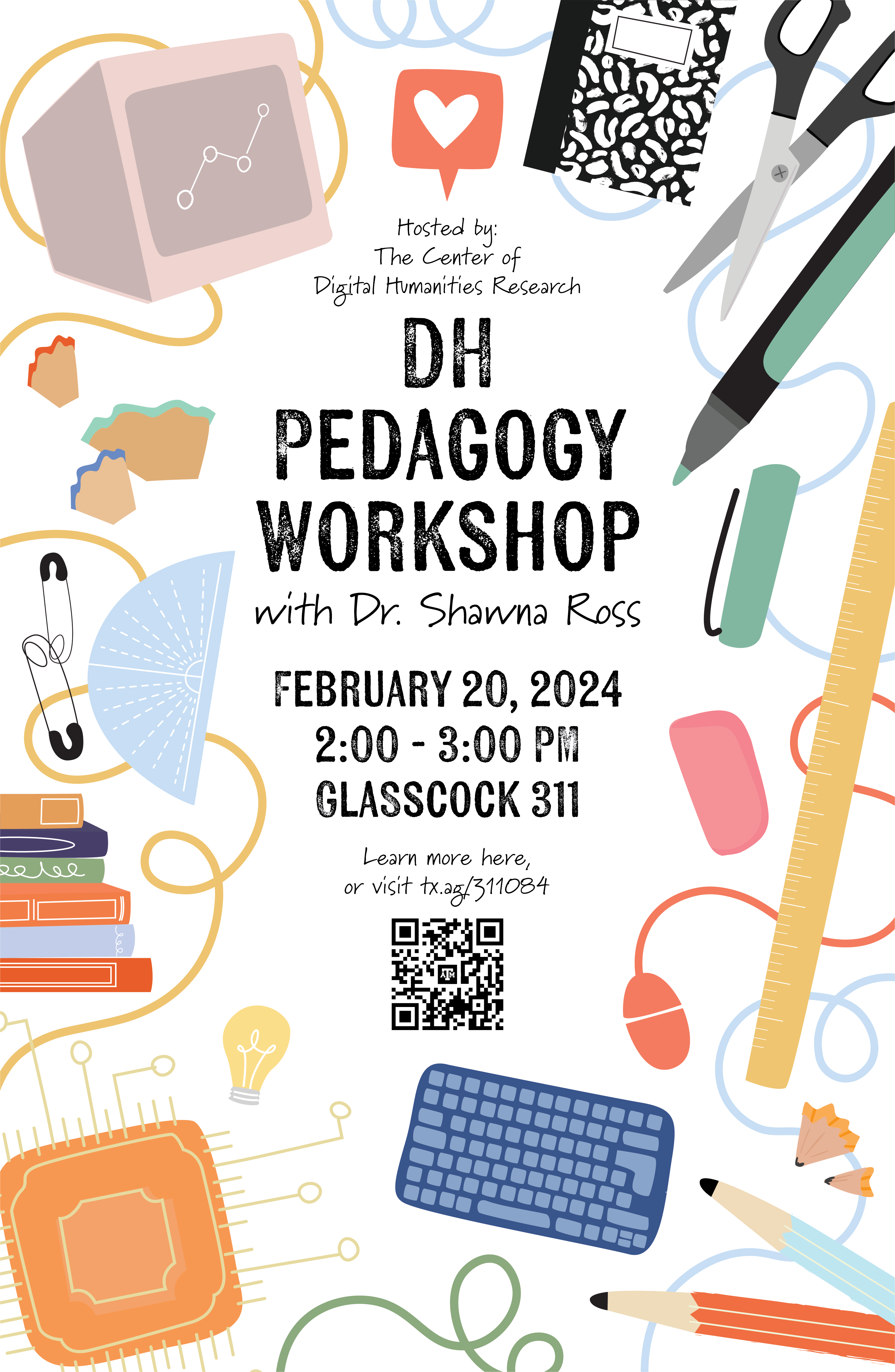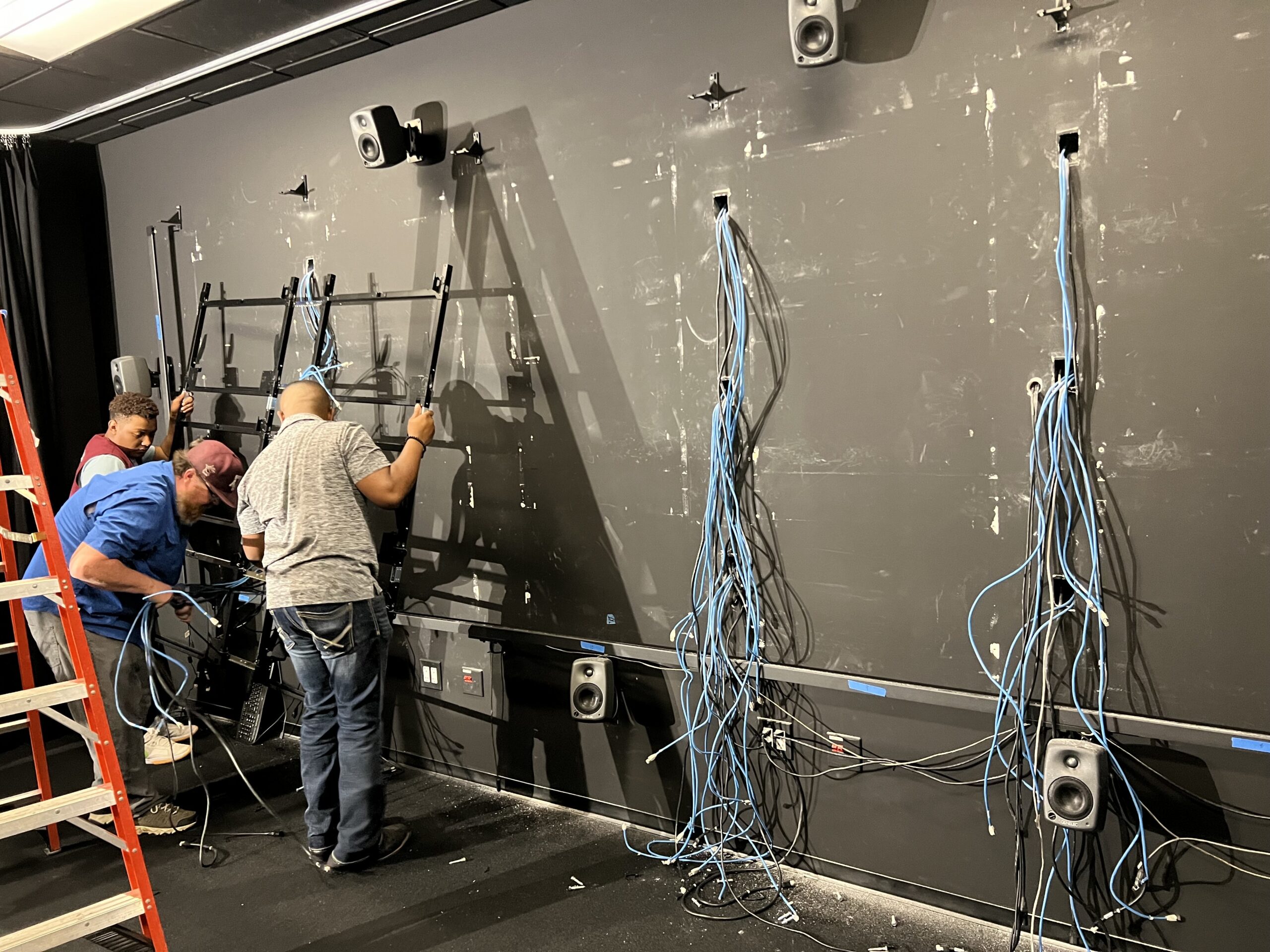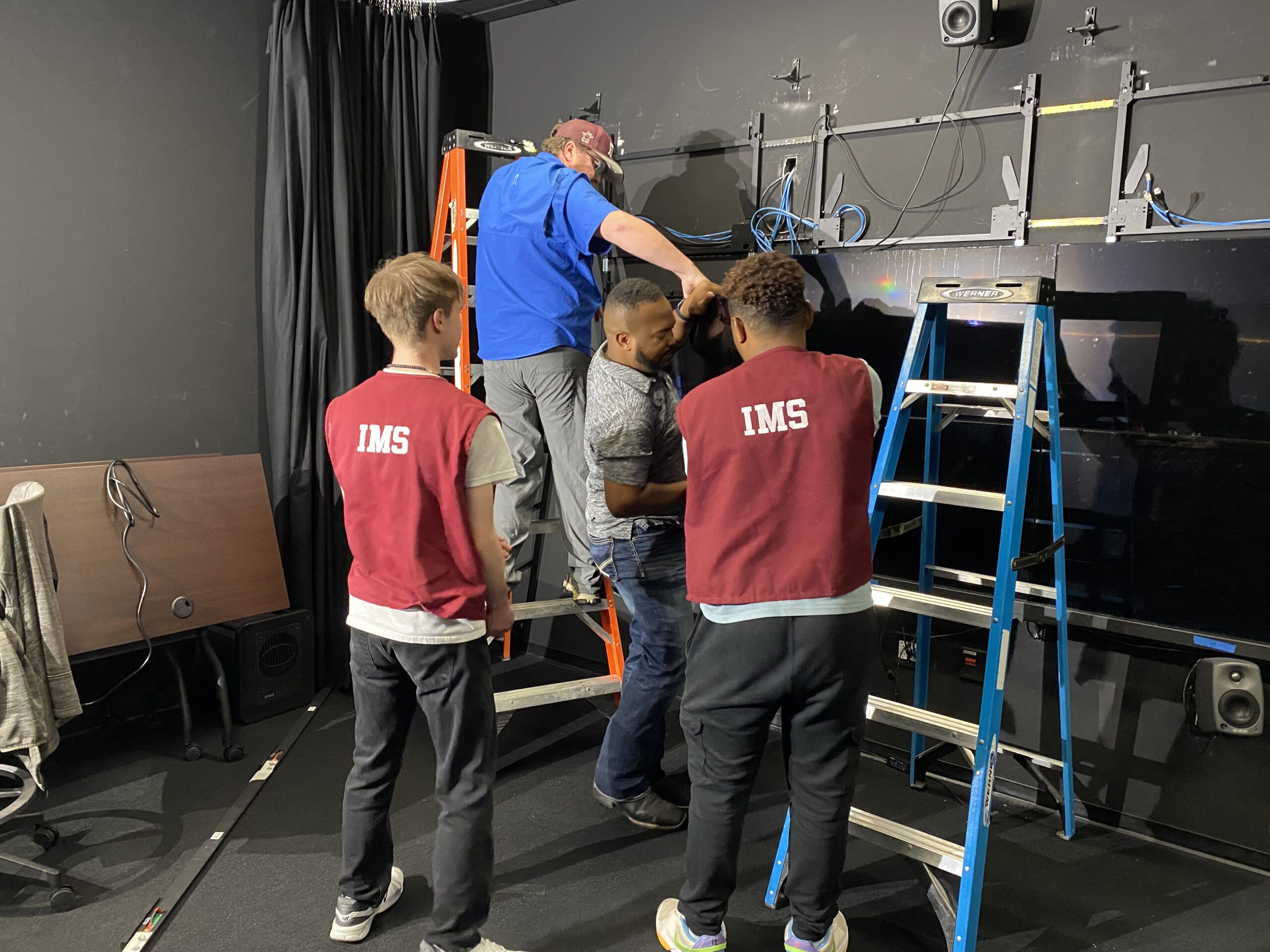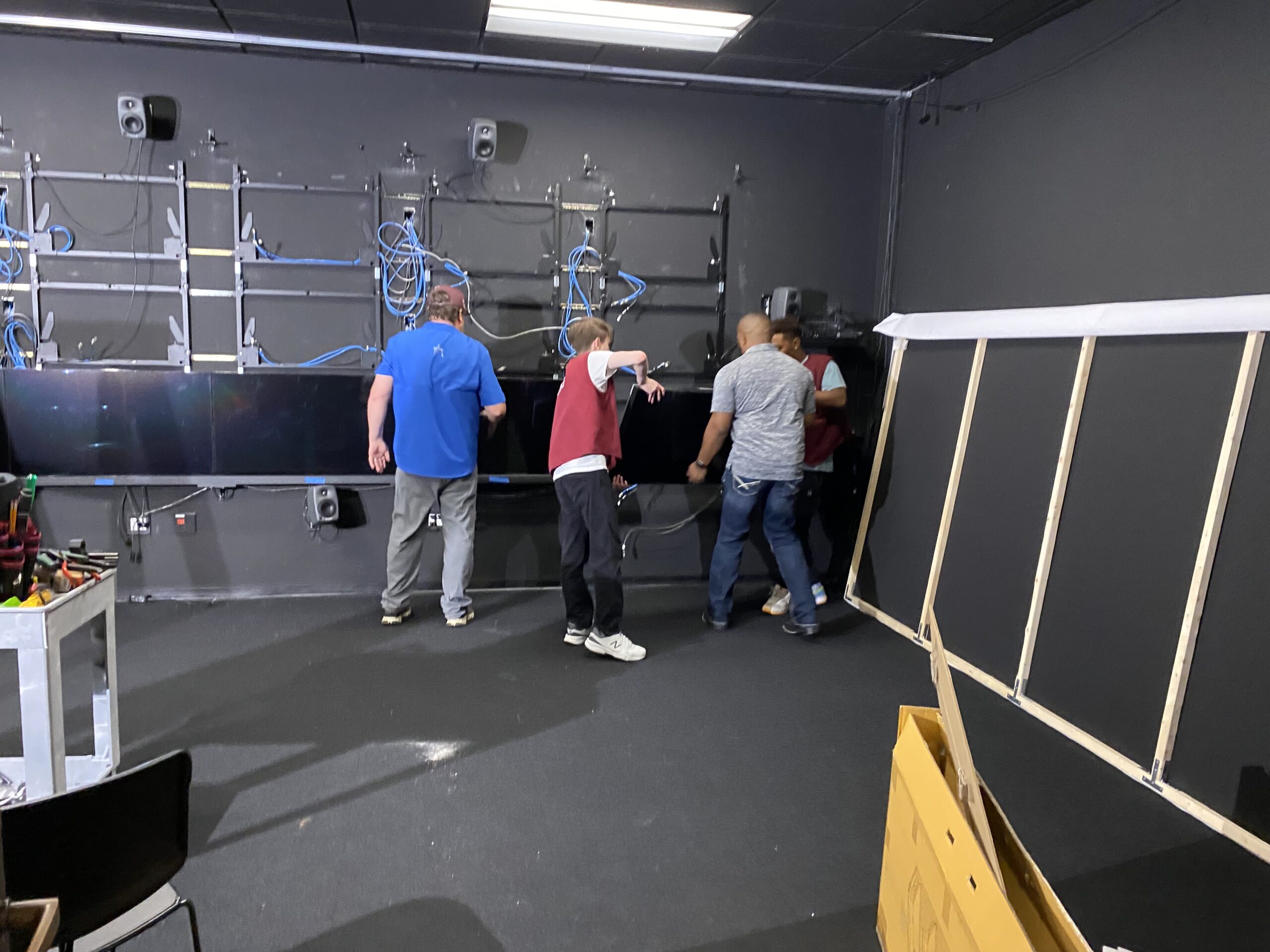Annual Reports
CoDHR's Year in Review: 2023-24
The Center of Digital Humanities Research (CoDHR) at Texas A&M has had a landmark year, with new projects, revitalized programs, and many opportunities for faculty, staff and students to engage with the DH community on campus and beyond.
Who We Are
CoDHR is Texas A&M’s only unit focused on digital humanities research and teaching. We serve as the University’s hub for academic inquiry in this interdisciplinary field, accelerating research by providing training, technical support, and opportunities for collaboration with colleagues inside and outside of our University.
Everything that happens at CoDHR reflects the dedication and creativity of its advisors and staff. One of my first tasks as Director was to appoint the members of our Advisory Board, Dr. Tianna Uchacz, Sarah Potvin, and Dr. Shawna Ross. The Board’s insight and expertise has been crucial to the Center’s reimagining of its mission and goals, as have the stellar efforts of CoDHR’s Project Coordinator, Kayley Hart and Associate Research Scientist, Dr. Bryan Tarpley. CoDHR’s growth and success in 23-24 has truly been a team effort!
CoDHR’s goals for 23-24 focused on three areas: building community, strengthening infrastructure, and fostering research.
Building Community
To better understand the needs and interests of our local DH community, CoDHR initiated the DH Working Group (DHWG) in Fall 2024, co-convened by myself and ENGL Ph.D. candidate Alexandra E. LaGrand. Based on feedback from the DHWG, CoDHR sponsored workshops on professionalization for digital humanists, digital pedagogy, and GIS.
One of our goals for 23-24 was to improve communication with the wider DH community, both on campus and beyond. Thanks to our Program Coordinator, CoDHR’s website has been completely redesigned and now serves as an information hub for anyone seeking to learn more about DH tools, opportunities, and events. We have also rolled out a weekly DH digest featuring calls for papers, funding opportunities, and other DH-related news.
To highlight the research we sponsor, CoDHR hosted a Project Showcase in January, held in our newly renovated Humanities Visualization Space.
Showcase Presenters and Projects:
- Katayoun Torabi, “The New Variorum Shakespeare”
- Daniel L. Schwartz, “Syriaca.org”
- Alexandra E. LaGrand, “Points Like A Man: The Shakespearean Breeches Performance Catalogue, 1660-1900”
- Susan Egenolf, “Maria Edgeworth Letters Project”
- Tianna Helena Uchacz, “Texas Art Project”
- Britt Mize, “Beowulf’s Afterlives”
Strengthening Infrastructure
CoDHR completed two major infrastructure projects over the last year. In partnership with Academic Computing, we replaced our aging servers with virtual machines, a decision that allows us to enhance the security and stability of hosted projects and to devote more of our time to working with scholars.
We have also completely renovated the Humanities Visualization Space. Instead of a matrix of screens, we now use edge-blending hardware to project high definition images on a 17’ x 6’ screen. The completed room now features a new AV system and surround sound and new LED lighting. Dr. Tarpley led the renovation efforts, selecting, installing and testing new equipment and software – and even building the new projector screen! We are eager to welcome new researchers to the HVS in the coming year.
Fostering Research
CoDHR’s primary mission is to advance DH research at Texas A&M. Over the last year, we’ve pursued that goal by bringing visiting scholars to campus, providing research funding and technical support, and offering multiple opportunities for DH training and consultation.
CoDHR’s Speaker Series, “Sustainable DH,” featured three internationally recognized scholars: Dr. Jentery Sayers from the University of Victoria; Dr. Alison Langmead from the University of Pittsburgh, and Dr. Roopika Risam from Dartmouth College.
CoDHR also co-sponsored Folio Futures, a symposium focused on digital editing of Shakespeare’s works.
In Fall 2023, CoDHR initiated two new research support programs: Technical Assistance Grants and Research Fellowships. Calls for these programs were issued in the fall and late spring, with awards given to a total of 17 faculty and students from seven different departments in three TAMU Colleges and Schools. Recipients of CoDHR awards have access to specialized software development, technical support, and interface design.
The technical assistance grant was essential for beginning the process of creating a freestanding digital edition of Countee Cullen’s poem “Heritage.” Bryan Tarpley provided essential training on Corpora and imported my existing data which will provide me with all of the necessary resources to advance my research project to its next stages. After I have entered all of the variant data into Corpora (a program which thanks to Bryan I now feel comfortable using), I will move on to the next stage of the process of building an edition.
- Dr. Ira Dworkin, ENGL Associate Professor
DH research often requires scholars to learn new technical skills and to develop an interdisciplinary knowledge base. In Spring 2024, CoDHR debuted a new Programming for Humanists course, “Making Websites from Scratch.”
Through our membership in the acclaimed Digital Humanities Summer Institute, CoDHR also sponsored 5 faculty and graduate students to attend week-long DH training workshops in June 2024.
I received a CoDHR sponsorship to attend the first week of the Digital Humanities Summer Institute (DHSI) to participate in the course "Engaging Play.”
My project, titled Medieval Dayraven, is a WordPress website that relates the literary and cultural history of medieval games – with a particular focus on modern games that have a history in the medieval period.
My project is not complete since the nature of my website requires frequent updating and is ongoing; however, this DHSI class allowed me to better understand how other scholars perceive games and understand game theory, and it introduced me to a useful tool called Twine... The instructors’ thoughts, in addition to their game recommendations of Pentiment and A Plague’s Tale, which adapt medieval culture, allows me to add to and grow my digital project about medieval gaming and adaptations of the medieval in modern games.
- Kristen York, ENGL Ph.D. Candidate
I attended the Digital Humanities Summer Institute (DHSI) course entitled "Code the X-Files using the XML Family of Languages." During this course, we learned Schematron, XPath, and XQuery. Learning these three languages and their capabilities has allowed me to better understand and manipulate the XML data used for the New Variorum Shakespeare project, and has also allowed to me consider how we can most effectively XML encode NVS data going forward. With Schematron, we can prevent a lot of errors from being introduced when we start encoding NVS volumes from scratch. Finally, DHSI allowed me to meet and network with many Digital Humanists in a variety of fields, and I am looking forward to building upon those connections with my future DH work. The DHSI community is so friendly and welcoming, and I really appreciate that CoDHR has chosen to support students and faculty attending DHSI.
- Dr. Dorothy Todd, ENGL Instructional Assistant Professor and Associate Digital Editor for "The New Variorum Shakespeare"
We’ve also implemented weekly office hours during which anyone can drop in to talk about project ideas, troubleshoot an existing project, or just enjoy a cup of coffee and good (DH) conversation.
Future plans
To better meet the needs of our growing DH community, CoDHR initiated a search for an Associate Director in Spring 2023. As of August 2024, Dr. Amy Earhart, an internationally recognized DH scholar, is joining the CoDHR team, serving as Acting Director for 24-25 and as Associate Director when I return from Faculty Development Leave.
Public Humanities will be the topic of our 24-25 speaker series, and we look forward to offering more opportunities for Texas A&M faculty, staff and students to become involved in digital humanities research. If you want to know more about what we have planned, check our website, and consider joining our listserv or the DH working group.

Dr. Maura Ives, Director of the Center of Digital Humanities Research






